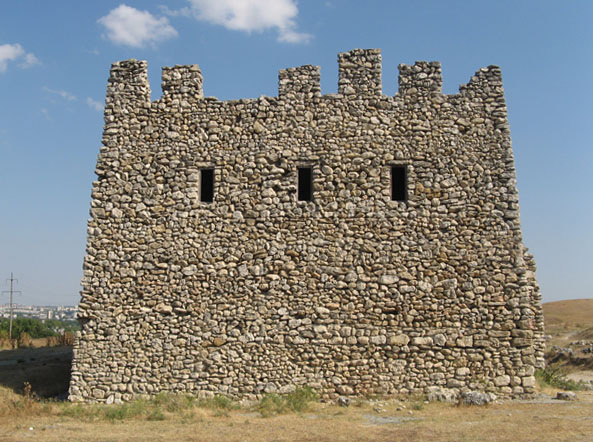Scilurus on:
[Wikipedia]
[Google]
[Amazon]
 Skilurus, or Scylurus, was a renowned
Skilurus, or Scylurus, was a renowned
 Skilurus, or Scylurus, was a renowned
Skilurus, or Scylurus, was a renowned Scythian
The Scythians or Scyths, and sometimes also referred to as the Classical Scythians and the Pontic Scythians, were an ancient Eastern
* : "In modern scholarship the name 'Sakas' is reserved for the ancient tribes of northern and eastern Centra ...
king reigning during the 2nd century BC. His realm included the lower reaches of the Borysthenes and Hypanis, as well as the northern part of Crimea
Crimea, crh, Къырым, Qırım, grc, Κιμμερία / Ταυρική, translit=Kimmería / Taurikḗ ( ) is a peninsula in Ukraine, on the northern coast of the Black Sea, that has been occupied by Russia since 2014. It has a pop ...
, where his capital, Scythian Neapolis
Scythian Neapolis ( el, Σκυθική Νεάπολις), also known as Kermenchik, was a settlement that existed from the end of the 3rd century BC until the second half of the 3rd century AD and was previously considered a town of the Tauric Che ...
, was situated.
Skilurus ruled over the Tauri and controlled the ancient trade emporium of Pontic Olbia
Pontic Olbia ( grc, Ὀλβία Ποντική, uk, Ольвія) or simply Olbia is an archaeological site of an ancient Greek city on the shore of the Southern Bug estuary (''Hypanis'' or Ὕπανις,) in Ukraine, near the village of Paruty ...
, where he minted coins. In order to gain advantage against Chersonesos, he allied himself with the Sarmatian
The Sarmatians (; grc, Σαρμαται, Sarmatai; Latin: ) were a large confederation of ancient Eastern Iranian equestrian nomadic peoples of classical antiquity who dominated the Pontic steppe from about the 3rd century BC to the 4th cen ...
tribe of Rhoxolani. In response, Chersonesos forged an alliance with Mithridates VI
Mithridates or Mithradates VI Eupator ( grc-gre, Μιθραδάτης; 135–63 BC) was ruler of the Kingdom of Pontus in northern Anatolia from 120 to 63 BC, and one of the Roman Republic's most formidable and determined opponents. He was an e ...
of Pontus. Skilurus died during a war against Mithridates, a decisive conflict for supremacy in the Pontic steppe. Soon after his death, the Scythians
The Scythians or Scyths, and sometimes also referred to as the Classical Scythians and the Pontic Scythians, were an ancient Eastern
* : "In modern scholarship the name 'Sakas' is reserved for the ancient tribes of northern and eastern Centra ...
were defeated by Mithridates (ca. 108 BC). Either Skilurus or his son and successor Palacus
Palacus or Palakus was the king of Crimean Scythia who succeeded his father, Skilurus. Resuming the latter's war against Mithridates the Great, he attempted to besiege Chersonesos but was defeated by Pontic forces under Diophantus. Enlisting th ...
were buried in a mausoleum at Scythian Neapolis; it was used from ca. 100 BC to ca. 100 AD.
Pseudo-Plutarch Pseudo-Plutarch is the conventional name given to the actual, but unknown, authors of a number of pseudepigrapha (falsely attributed works) attributed to Plutarch but now known to have not been written by him.
Some of these works were included in s ...
, in ''Sayings of Kings and Commanders'', reports the following version of the Aesop
Aesop ( or ; , ; c. 620–564 BCE) was a Greek fabulist and storyteller credited with a number of fables now collectively known as ''Aesop's Fables''. Although his existence remains unclear and no writings by him survive, numerous tales c ...
ic fable " The Old Man and his Sons": "Scilurus on his death-bed, being about to leave eighty sons surviving, offered a bundle of darts to each of them, and bade them break them. When all refused, drawing out one by one, he easily broke them; thus teaching them that, if they held together, they would continue strong, but if they fell out and were divided, they would become weak." ''cf.'' "Unity makes strength
"Unity makes strength" ( bg, Съединението прави силата, Săedinenito pravi silata; nl, Eendracht maakt macht, ; french: L'union fait la force) is a motto that has been used by various states and entities throughout histo ...
”.
References
*''Content of this page in part derives from the ''Great Soviet Encyclopedia
The ''Great Soviet Encyclopedia'' (GSE; ) is one of the largest Russian-language encyclopedias, published in the Soviet Union from 1926 to 1990. After 2002, the encyclopedia's data was partially included into the later ''Bolshaya rossiyskaya e ...
'' article on the same subject.''
{{reflist
Scythian rulers
Ancient Crimea
2nd-century BC rulers
2nd-century BC Iranian people